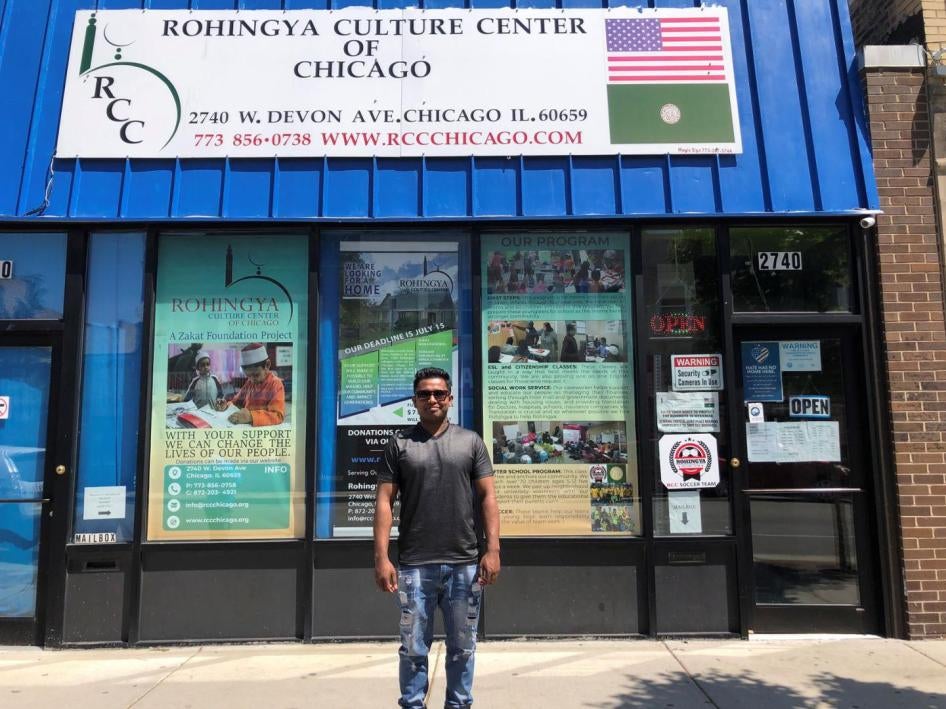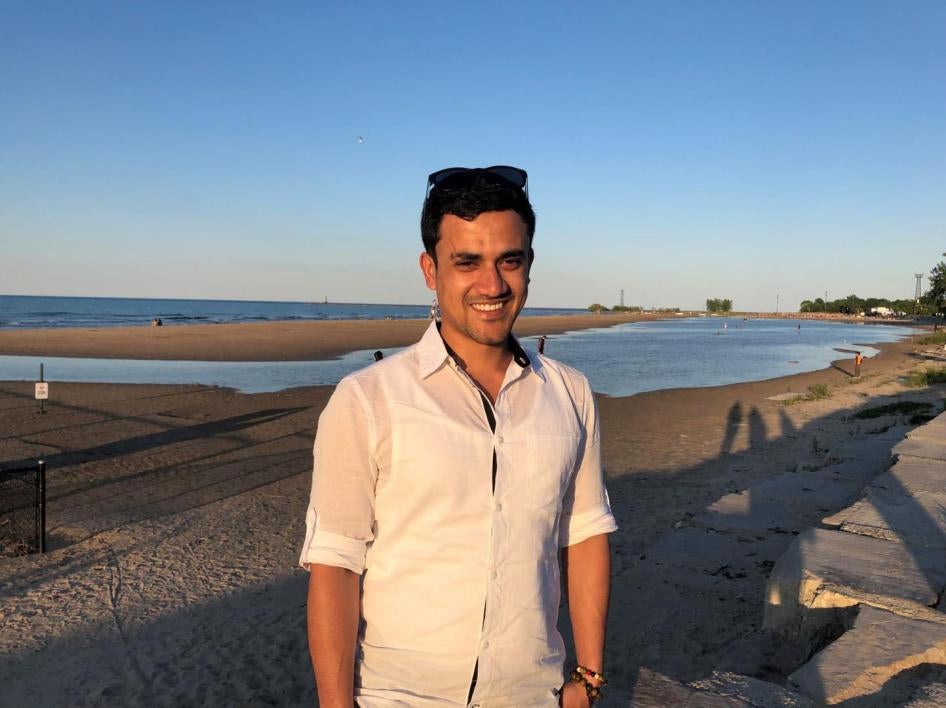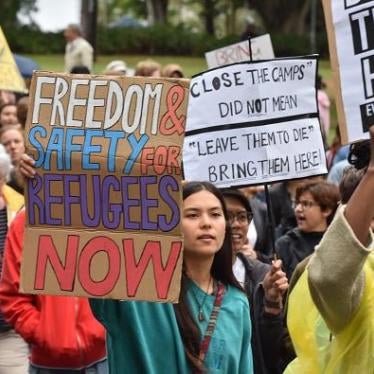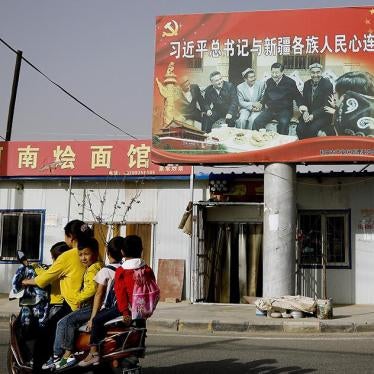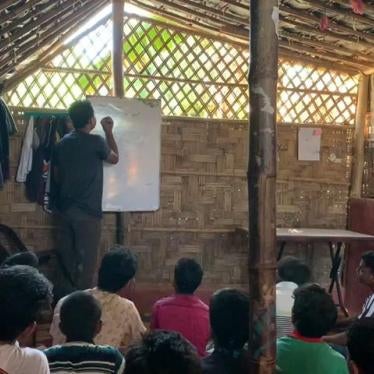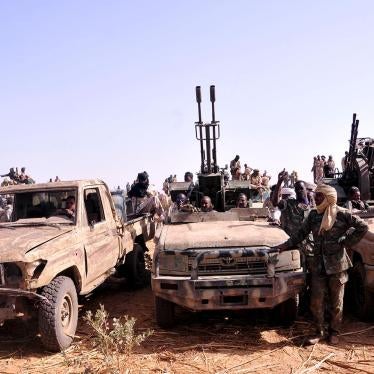Resettlement in the US has allowed some long-persecuted people to flourish, but that doesn’t let Australia off the hook.
“To freedom.”
Imran, a 25-year-old Rohingya refugee from Myanmar, raises a glass with a big smile. We are in a bustling restaurant on Chicago’s north side. This midwestern city seems a million miles from Myanmar, Papua New Guinea, or the tiny Pacific island nation of Nauru, yet it’s now home to several Rohingya men resettled under an agreement between Australia and the US.
These new Chicagoans endured incredible hardships to find their freedom here. They fled ethnic cleansing and discrimination by the Myanmar government against the Rohingya Muslim minority, only to be sent to desolate Pacific island detention centers by the Australian government.
The last time I had seen Imran was in September 2017 on Manus Island in Papua New Guinea. Australian authorities had transferred him to Papua New Guinea in October 2013 and he remained trapped there until May 2018, when he departed for the US.
When I saw him in 2017, he was stressed and anxious. “We are used to fear, we live with fear all our lives,” he told me. There had been a spate of violent robberies targeting refugees, and the PNG police hadn’t done anything about it. He was living with hundreds of men in a remote, guarded detention center on a naval base.
Now Imran’s biggest fear is getting through the next Chicago winter: “I never thought I would crave the sun so much.” Imran just completed his GEDs for a high school diploma and plans to study social work, nursing, or IT. “I can do things myself here,” he told me. “There is a system in place, I’m happy for that. Back on Manus, there was no system. They just lied to us.”
For six years, under its offshore processing policy, the Australian government has been paying foreign governments to keep refugees and asylum seekers in Australian-funded facilities. There are still more than 500 men and women in Nauru and Papua New Guinea.
I’ve interviewed dozens of men, women and children about their experiences there. The years of detention and its toll on their mental health. The robberies, assaults and violence, including sexual violence, with little law enforcement by local police. The woefully inadequate physical and mental health care.
But the US has enabled some of these forgotten and long-persecuted people to flourish and get on with their lives. Some got off to a rocky start. A conservative Rohingya Muslim, Ataullah, was pleased to move from Nauru to the US but was shocked to find himself initially resettled to Las Vegas. “I lasted three days and then I moved myself to Chicago,” he told me. He now works in a hardware store.
Another Rohingya resettled from Nauru, Faisal, works as a server in a restaurant at O’Hare airport. “I can’t wait to be an American,” he told me. “In Nauru, I was called by my boat number, I was called ‘refugee’. I felt like I had that word plastered on my face. Here, the Chicagoans just call me Faisal, and if they don’t know my name, they even call me sir.”
Faisal told me he left Bangladesh when he was 15 and was sold twice in Malaysia, forced to work in construction to pay off a debt to traffickers. He tried to come to Australia by boat with a relative but wound up on Nauru. He said he still has nightmares about the camp. “You wouldn’t recognize me there – I was a different person.”
Faisal now looks like any other 20-something on the north side. He wears fashionably ripped jeans, a tidy T-shirt, and sunglasses. He pulls out his phone and shows me a photo of him in the camp looking gaunt and sad with vacant eyes. Now he’s proud to show me around the West Ridge neighborhood, including the local Rohingya community center.
Imran, Ataullah and Faisal are among more than 600 refugees who have been resettled in the US so far. But others haven’t been so lucky. The US has rejected about 300 refugees for resettlement, and Australia has repeatedly rejected New Zealand’s standing offer to take in 150 refugees per year, claiming that accepting it would encourage more boat arrivals as New Zealand is a “back door route” to Australia.
For Imran, the happiness about moving on with his life is still tainted by the fact that others remain behind. “I’m happy of course, but I am also broken for those who are left behind. I think about them constantly.”
The day I left Chicago, Imran wrote me on WhatsApp: “Freedom allows us to do so many great things. We are really grateful to be free and safe in this country. I will do my best to get an education because it will open my doors and will allow me to be a voice for others.”
The US helped Australia out by resettling some refugees, but that does not let Australia off the hook. Given the litany of human rights violations, those who remain in Papua New Guinea and Nauru should be transferred immediately to Australia, whatever their final destination. The experiences of Imran and others are a lesson for Australia, that all people need is freedom and hope.

